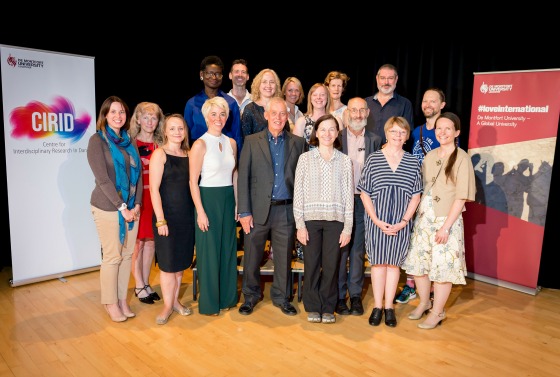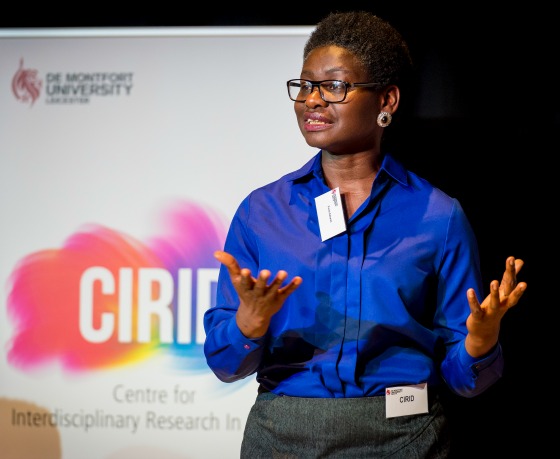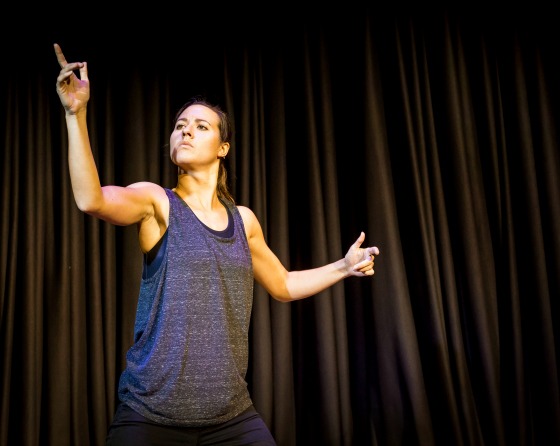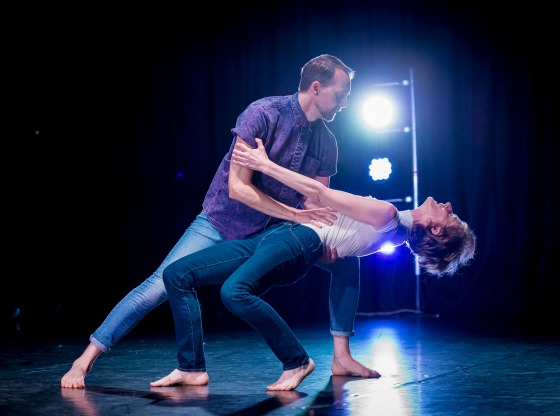De Montfort University Leicester (DMU) has launched a ground-breaking new research centre today, to explore the many facets of dance by bringing together academics from different disciplines.

DMU's CIRID team is made up of academics from a wide range of disciplines
The Centre for Interdisciplinary Research in Dance (CIRID) builds on DMU’s internationally recognised profile and will expand the university’s already significant dance research.
Offering a range of research perspectives and approaches, CIRID embraces diversity and connects academics from areas far and wide including dance, adaptations, creative technologies, drama, English literature, fine art, music, performance and theatre.
The launch event celebrated CIRID’s work with addresses from DMU’s Vice-Chancellor Professor Dominic Shellard, dance scholars, sector leaders and students, followed by a networking lunch and a performance by dancers and musicians from the Centre.
Professor Shellard said: “CIRID takes many of the things for which DMU is already well known – creativity, interdisciplinarity, diversity, practice-based research, the building of partnerships and much more – and brings them together in a fresh, vivid and distinctive way.
“This is a bold and exciting initiative that will open up new perspectives on dance and its place in our culture.”

Funmi Adewole addressed the audience passionately
In a pre-recorded address to attendees, DMU alumnus and world-renowned choreographer Akram Khan, said: "I'm extremely excited about CIRID, about interdisciplinary art forms and things that come together to have a dialogue. It really works in parallel to my own work, that's what excites me most. Through my own practice I've been fascinated by other forms, other disciplines that share choreography in some way. I think there is movement in everything."
"To share and experience with other researchers in other fields and how they work with your own allows you to grow and to learn about your own art form. It's extremely exciting for the dance world."
Other speakers included Professor Susan Jones from the University of Oxford and author of Literature, Modernism, and Dance, and Paul Russ, Artistic Director of Dance4 and IC4C, the International Centre for Choreography.
RELATED NEWS
Dance student ready to 'take on the world' thanks to DMU
Find out more about our Dance courses at the next Open Day

Jo Read's powerful performance
Funmi Adewole, a Dance PhD student at DMU exploring black choreography in Britain over the 20-year period between 1985 and 2005, also spoke at the event.
She said: “I am thrilled that DMU is making this kind of investment in dance research.
“I would find my thesis impossible to carry out if I didn’t have interdisciplinary supervisors who are engaged with current debates and arguments both within and outside of the university.”
A short solo performance by Jo Read, another a DMU Dance PhD student, showcased popping, one of the original funk dance styles that originated from California during the late 1960s.
Jo, who is also a lecturer in Dance: Urban Practice at the University of East London, said: “Dance is an art form that speaks to so many others and to understand how your research sits in a wider context of practices is important, especially from a student’s perspective."
“The very fact that I was invited to perform today is forward-thinking. This centre provides an excellent opportunity for dance practice as a research to be placed in conversation with so many other disciplines.”

A fun and entertaining performance by CIRID members
The event closed with a preview performance of Sally Doughty’s interdisciplinary improvisation Renaissance with Pete Shenton, Audrey Riley, James Woodrow and Professor Craig Vear.
Michael Huxley, the first director of the CIRID, said: “Our interdisciplinary approach will open up new areas of research into dance in the UK and globally.
“Today we are celebrating the fact that we are working as a team across DMU, as well as raising awareness both within and outside of the university.
“We hope to talk to people widely within the dance profession to show how our research approach can help them and we are looking to establish local, regional and national partnerships.”
Posted on Wednesday 14 September 2016